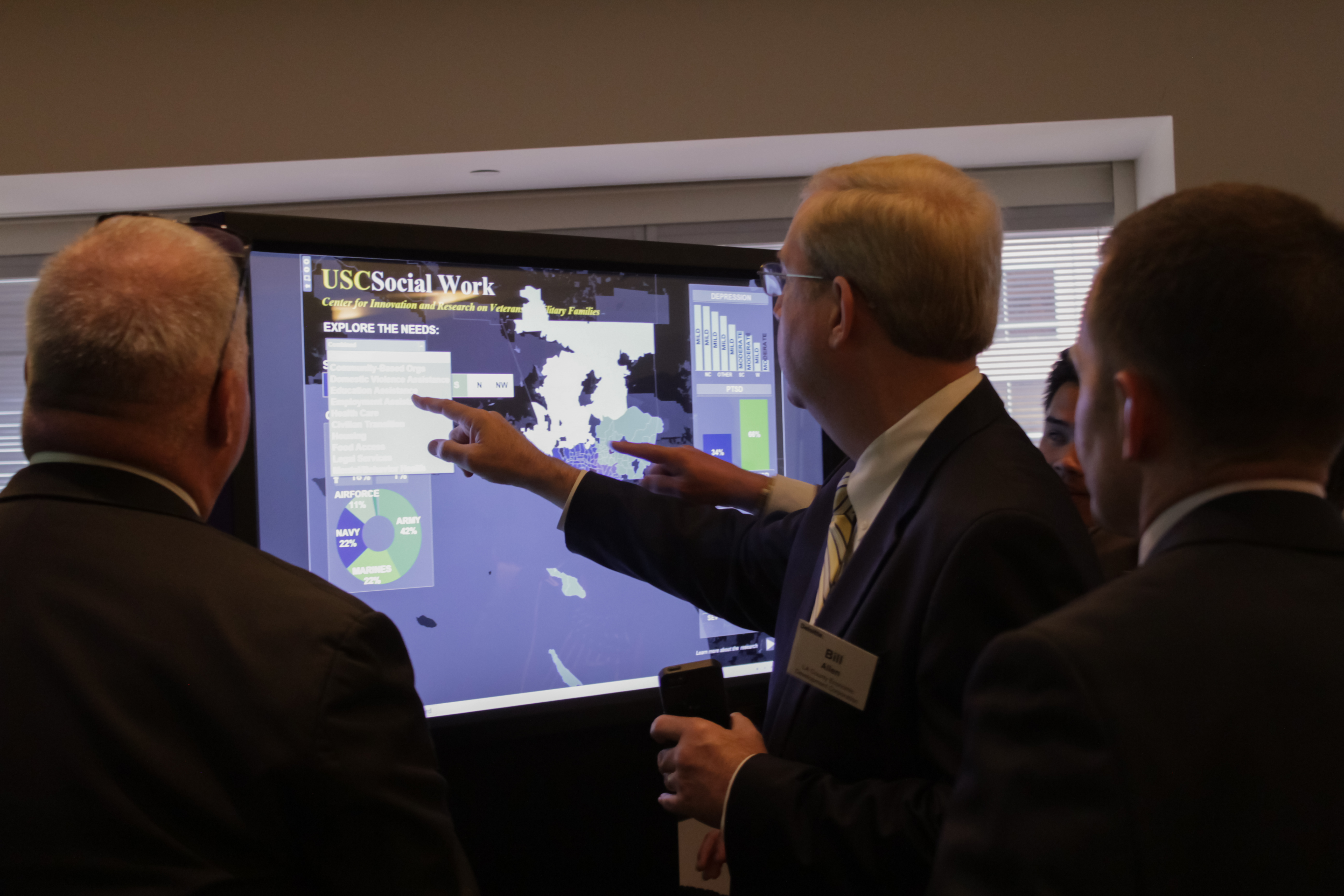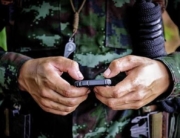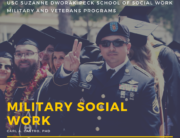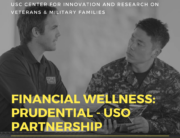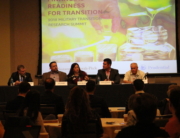by Claudia Bustamante
About 120 Los Angeles leaders received an initial look on June 6 at findings from the county’s first and most comprehensive study of the military population, which will be used to inform veteran policy and programs moving forward.
The Center for Innovation and Research on Veterans & Military Families at the USC School of Social Work conducted more than 1,850 surveys of veterans to help identify the areas of greatest need in Los Angeles County, home to the largest population in the country.
Speaking on the 70th anniversary of D-Day, Anthony Hassan, the center’s director, said Los Angeles must move forward in a similar fashion to create meaningful impact within this community.
“As they were able to rally, strategize, bring allies together, consolidate resources, target intervention, I think today we need to do the same,” he said. “We have to target our work and, today, the data is going to help us do that.”
Mayoral message
The full report will be available in September, but last week’s event, in partnership with Deloitte Impact Day, was an opportunity to showcase some of the findings from the Los Angeles Veterans Survey and to have a room full of Los Angeles civic, business and nonprofit leaders begin to strategize collective action for the area’s veterans.
In a video message, Los Angeles Mayor Eric Garcetti said the event marked a significant milestone for the city’s military community: “For the first time, we finally have the data we need to drive the best possible policy and programs. [It] sheds much-needed light on the challenges and opportunities that confront our veteran community.”
The day brought a varied group of leaders from different sectors, including government, business and nonprofit. Government leaders in attendance included U.S. Rep. Lucille Roybal-Allard (D-Commerce); Peter Gravett, secretary of the California Department of Veterans Affairs; and Karen Baker, the state’s chief service officer. Also present were key figures in the veteran philanthropy sector who have previously supported the center and the USC School of Social Work, including Bill Ahmanson, Mary Odell from the UniHealth Foundation, and Stephen Robinson of Prudential.
Robinson, Prudential’s vice president of external veterans affairs, said the data was crucial for funders to make informed decisions. “As a funder, I need to know where to put my money and know that it has impact,” he said.
“What’s amazing about this gathering is that it’s the first of what we hope will be a movement that will spread across the United States,” added Robinson, who hoped other cities and states would follow suit and use data to develop well thought-out veteran policies.
Best practices and community action
Since its inception, the center has conducted research that would not reside in an academic vacuum, but rather could inform the school’s military social work curriculum, best practices for behavioral health practitioners and community action. The military population is confronted with difficult and enduring challenges that do not lend themselves to simple solutions. Research, therefore, is critical for understanding these issues and driving community impact.
The Los Angeles Veterans Survey, supported by Newman’s Own Foundation and Deloitte, was informed by a theoretical approach that identified key moments when challenges are most likely to occur. According to military transition theory, people are more likely to encounter challenges around significant transitions in their life. Though transitions are not unique to the military (e.g., college, marriage, children), some examples include deployment, returning from deployment and, ultimately, exiting the military.
Research director Carl Castro said theory was critical to the survey. “If you don’t know what you’re measuring, you may not be measuring the right things.”
Veterans are a hidden population, which makes it difficult to study. Furthermore, because of military culture, many are averse to seeking help for any issues that arise.
This reality is often exacerbated by the process of transitioning out of the military, said Lt. Col. Brian Gilman, national organizations director of Warrior and Family Support with the Office of the Chairman of the Joint Chiefs of Staff.
Unlike induction, which includes boot camp, a team and leaders, the service member is solely responsible at this point. “Self is an unfamiliar concept,” said Gilman, who gave the event’s keynote address.
“They have to choose the organization, mission and values that matter to them now. It can lead to the risk factors that we’ve heard so often—homelessness, unemployment, isolation and suicide.”
The day’s main take-away was that the data gathered from the Los Angeles Veterans Survey is only as useful as the people who use it. Committed stakeholders will still need to work together to help returning veterans successfully reintegrate into their civilian communities.
“It’s one thing to have the data. It’s another to act upon it and to have impact,” said Philip Brozenick, event moderator and principal at Deloitte.


